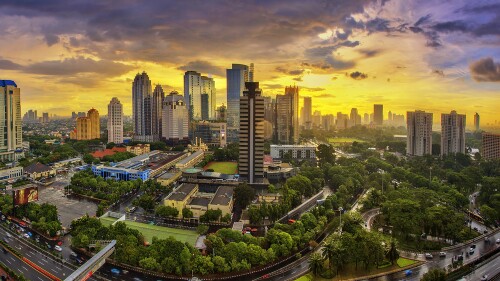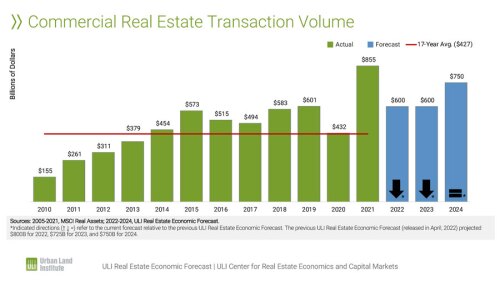Brexit and the recent U.S. and French elections came up in many conversations at ULI Germany’s recent Urban Leader Summit in Frankfurt. Although panelists said they are concerned about the geopolitical changes afoot, the domestic German economy remains strong.
The world economy is going like bumper cars right now, said Gertrud R. Traud, chief economist of the Landesbank Hessen Thüringen, whereas until recently it was more like a Ferris wheel, with fairly predictable long swings up and down. But she says that countries now are going full-speed ahead despite this new uncertainty. “Is there really volatility? The markets are so relaxed,” Traud said. “There’s long-term uncertainty perhaps, but macroeconomically, it’s relatively stable.”
The International Monetary Fund upgraded its 2017 economic outlook for Germany in January based on a strong 2016 showing. Traud said she has heard every year for 25 years that the world economy is in a scary place. Driving bumper cars is not for the faint of heart, “but with a little expertise and taking the wheel in the hand, we can get through these times,” she said.
“The biggest threat for the global economy is geopolitics,” said Klaus-Dieter Frankenberger, foreign politics editor for the Frankfurter Allgemeine Zeitung, a German newspaper. Highlighting the tense presidential election in France, North Korea’s pursuit of nuclear weapons, and the ongoing threat of Islamist violence, Frankenberger also pointed out diplomatic issues with Russia, China’s expansion, and the referendum in Turkey as sources of German anxiety. Frankenberger said there might be a “soft Brexit,” since leaving the European Union is much more complicated than voters were told.
What will the world look like in three years? “We’re going to be sitting somewhere saying, ‘It’s more uncertain than ever,’ ” Traud said.

From left to right: Sebastiano Ferrante, head of Germany and Italy, PGIM Real Estate; John Banka, managing principal, Project Partners International; Michael Cochran, senior managing director, Eastdil Secured; Josip Kardun, CEO of Multi Corporation; and moderator Ralph Winter, Gründer and senior adviser, CORESTATE Capital Group, speaking at ULI Germany’s 2017 Urban Leader Summit in Frankfurt.
Speaking on another panel, Josip Kardun, CEO of Multi Corporation, which operates shopping centers in Europe and Turkey, said that if the United States enacts a border adjustment tax there would likely be countermeasures in the European Union. “This is a fundamental shift in how global trade policy should be conducted,” he said. “It would have a heavy impact on retailers worldwide and then a heavy impact on real estate.”
“NAFTA being off the table was shocking. If you don’t believe in multilateral institutions, it gives everyone the impression they’ll be able to make their own deals in the United States,” said John Banka, managing principal at Project Partners International. He continued that some political issues will have impact where business locates, but creating meaningful work should be the focus. “If Europeans don’t agree on how to create those jobs, a lot of other discussions are short-term. Migration is short-term. Creating meaningful jobs is the big issue.”
Sebastiano Ferrante, head of Germany and Italy for PGIM Real Estate, said that he sees more capital flowing from Asia to the United States than to Europe. “Discussing the U.S. can be entertaining, but we have so many issues to solve in the Eurozone that are more relevant to us,” he said. “For Asia, Europe looks challenging. They’re worried if the euro will be there in five years. For the Middle East, the same thing—the U.S. seems more attractive.”
“My generation is not educated in how to deal with a non-Eurozone,” Kardun said. “We don’t see markets, we look at metropolitan areas. It would be a huge re-adaptation.”
If London is no longer part of the Eurozone, what European city will become the new financial center of Europe? Dublin, Amsterdam, and Luxembourg were all named as contenders, but Frankfurt—already a banking hub—could absorb many of those jobs.
Frank Bethmann, financial editor for German TV station ZDF, said that he thinks some of London’s finance jobs will come to Frankfurt in the case of Brexit. “Maybe 8,000 or 10,000 new jobs will come here, maybe more,” he said. “But digitalization also leads to more finance jobs going away.”
“Germany and Europe are still a good place for investment,” Bethmann said. “Europeans tend to undervalue themselves. If bubbles are going to pop, Germany is still O.K.”



